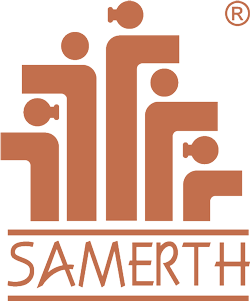Participatory Water Management
Water is the driving force of all nature - Leonardo Da Vinci
Samerth uses the Participatory Ground Water management (PGWM) principles and emphasize on Building, Reviving, Repairing and Reconstructing Water-Harvesting structures through its initiatives. The programme is based mainly to understand the groundwater scenario in the regions of Kutch and Chhattisgarh. Groundwater is an essential resource for farmers, especially in arid to semi-arid regions where the rainfall is a most non-reliant phenomenon. The enormous amount of usage of groundwater for drinking and irrigation purpose has sounded alarm bell for everyone as the deterioration of groundwater quality is a problem that has created severe water crisis.
Samerth began working in 2001 in Rapar region of Kutch, a drought-prone area facing water scarcity for 8 months of the year. Even today the primary area of intervention remains Rapar, while the Samerth team has also expanded its work in Nakhatrana and Bhachau blocks. In Kutch –Samerth has constructed, revived and recharged over 342 ponds, 131 wells, 26 check dams, 5 stepwells, 135 individual RRWHS (Rain Roof Water Harvesting Structures) at the household level and 25 in schools, Aganwadi 7, Gram panchayat 1 (data as of 2021).
The holistic approach of the work has enabled communities to understand the complexity of a water cycle, conservation and bring security throughout the year. They have understood the value of conserving water through its local water source. Families have stopped migrating and, in many instances, the span of migration has reduced to 4 or 5 months now as compared to 8 months of migration earlier.
Due to Samerth’s interventions, 10% of families are now only migrating in the peak summers for a short span of two months. In the last two decades due to Samerth’s interventions, 15,000 households from Rapar, Nakhatrana and Bhachau, have increased their incomes from Rs. 24,000 to Rs. 80,000 due to water availability for growing cash crops, increasing livestock, access to green pastures and carrying out dairy activities (providing milk to local dairies). Over the years, Kutch team has undergone intense hands-on training by experts based on groundwater management by integrating formal geo-hydrological science with traditional water management techniques. The team now has a group of ‘Jaldoots’ (identified from the local community at the grass-root level) that use their skills and knowledge and developing the resources to get maximum benefits to the local communities. At present 20 ‘Jaldoots’ from Samerth are part of the programme sharing the knowledge with farmers and they continue to receive on primary training on PGWM which enables them to use their skills in their respective field areas. Over the last six years, more than 10,000 persons from the communities in Kutch have benefited after availing entitlements of the state and central government schemes such as widow pension, old age pension, Mahatma Gandhi National Rural Employment Guarantee Act, 2005 (MGNREGA) job cards, and sanitation and housing scheme under Pradhan Mantri Gramin Awas Yojna (PMGYS), which was facilitated by Samerth. Samerth has been able to work closely and empower communities and helped them to leverage funds of more than 18 crores in the last 10 years.
In Chhattisgarh, the tribal communities living in remote interiors and forested areas do not have a continuous supply of safe drinking and usable water. Samerth’s programme on the water in the state aims to ensure safe drinking water, use of Participatory Ground Water management (PGWM) methods and to strengthen self-governance at the community level. Samerth began working in 2007 and till date has covered 22,000 households in 3 districts (Bilaspur, Kawardha and, Mungeli) with emphasis on tribal localities. Currently, Samerth has developed a cadre of Jaldoots in Chhattisgarh and provided training to them with the support of experts and have been able to successfully implement water resource development programme indifferent blocks of Chhattisgarh state.
Samerth now focuses on enhancing community participation by establishing Community-Based Organisations at the village /Panchayat level, so that the PVTGs (Particularly Vulnerable Tribal Groups) in Kawardha region are made aware of their rights and entitlements through the schemes implemented by the government. This has enabled us to involve the local tribal population on methods of participatory groundwater management by enhancing capacity through training. The training ranged from Geo-water science, surface water management, water resources management and groundwater storage, through which the groundwater crisis in these areas can be resolved following Integrated Water Resource Management (IWRM) Principles.
For the survey of Groundwater, Flow water, Surface water and water-related status of the institution and household digital formats like KoBo Tool Box has been developed for the ground team in Chhattisgarh.
Samerth is also a partner in the ‘Chhattisgarh High Impact Mega Watershed’ program in joint collaboration with MGNREGA cell, Department of Rural Development, Govt. of Chhattisgarh, since 2018. This programme is implemented by Samerth in two blocks of Kabirdham district i.e with 50 Gram Panchayats in Bodla (Intensive Block) and 13 Gram Panchayats in Pandariya (Non-Intensive Block). We currently have been able to leverage approx. Rs 30 crores from MGNREGA cell and more than 1500 families have benefited under this programme. The overall aim of the project is to leverage more than Rs 100 crore and to treat more than 1000 hectares of land in the district by 2022, Samerth is part if the team of 13 CSOs participating in the project.
Our Impact
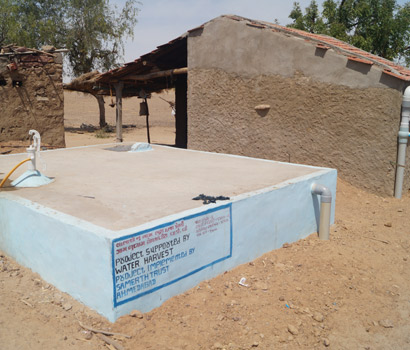
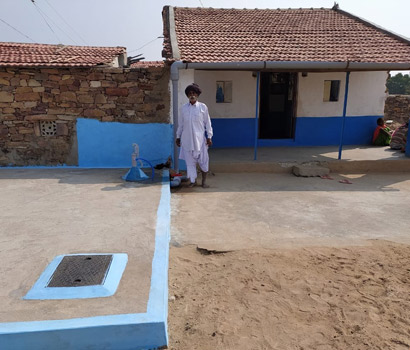
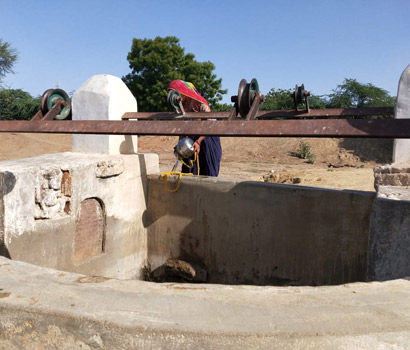
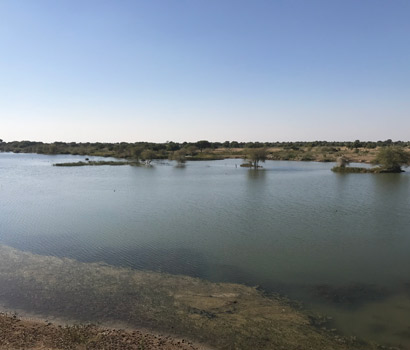
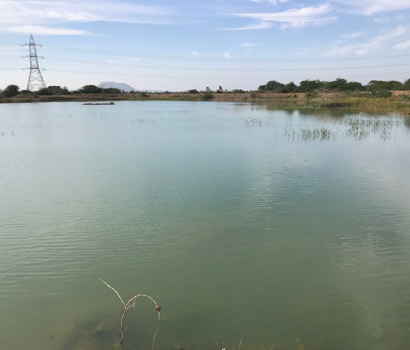
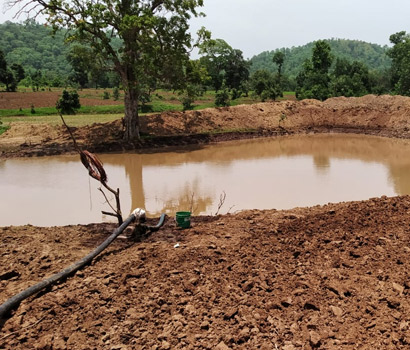
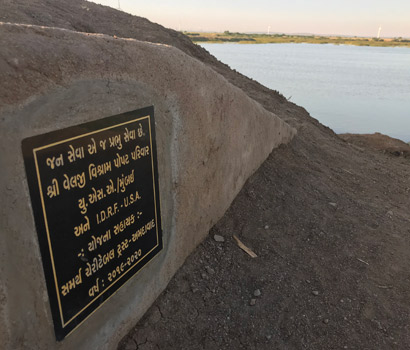
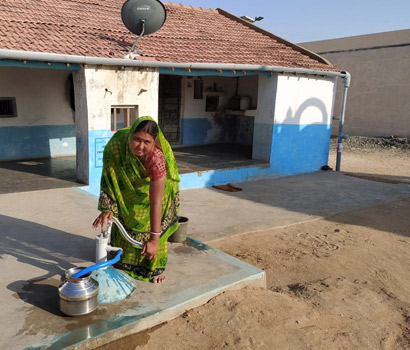
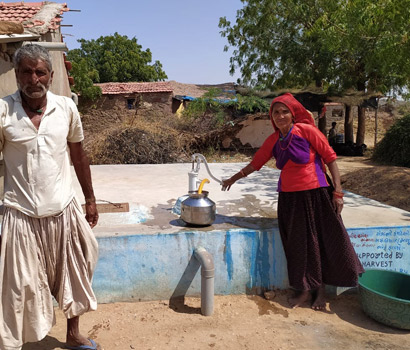
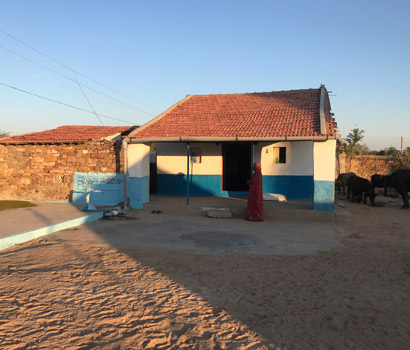
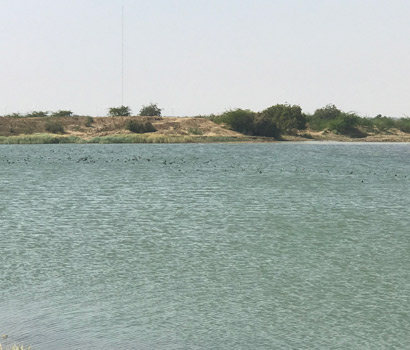
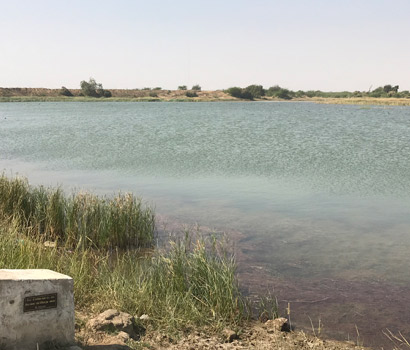
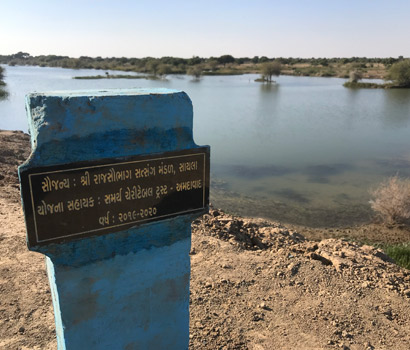
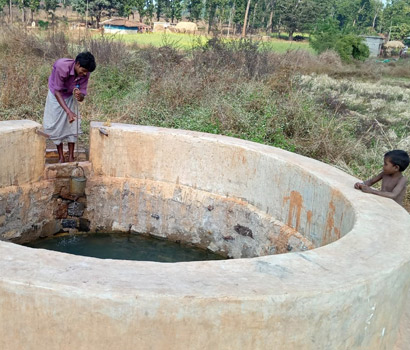
Our Impact Stories
With our water management programs we have been able to impact lives, some of the stories
